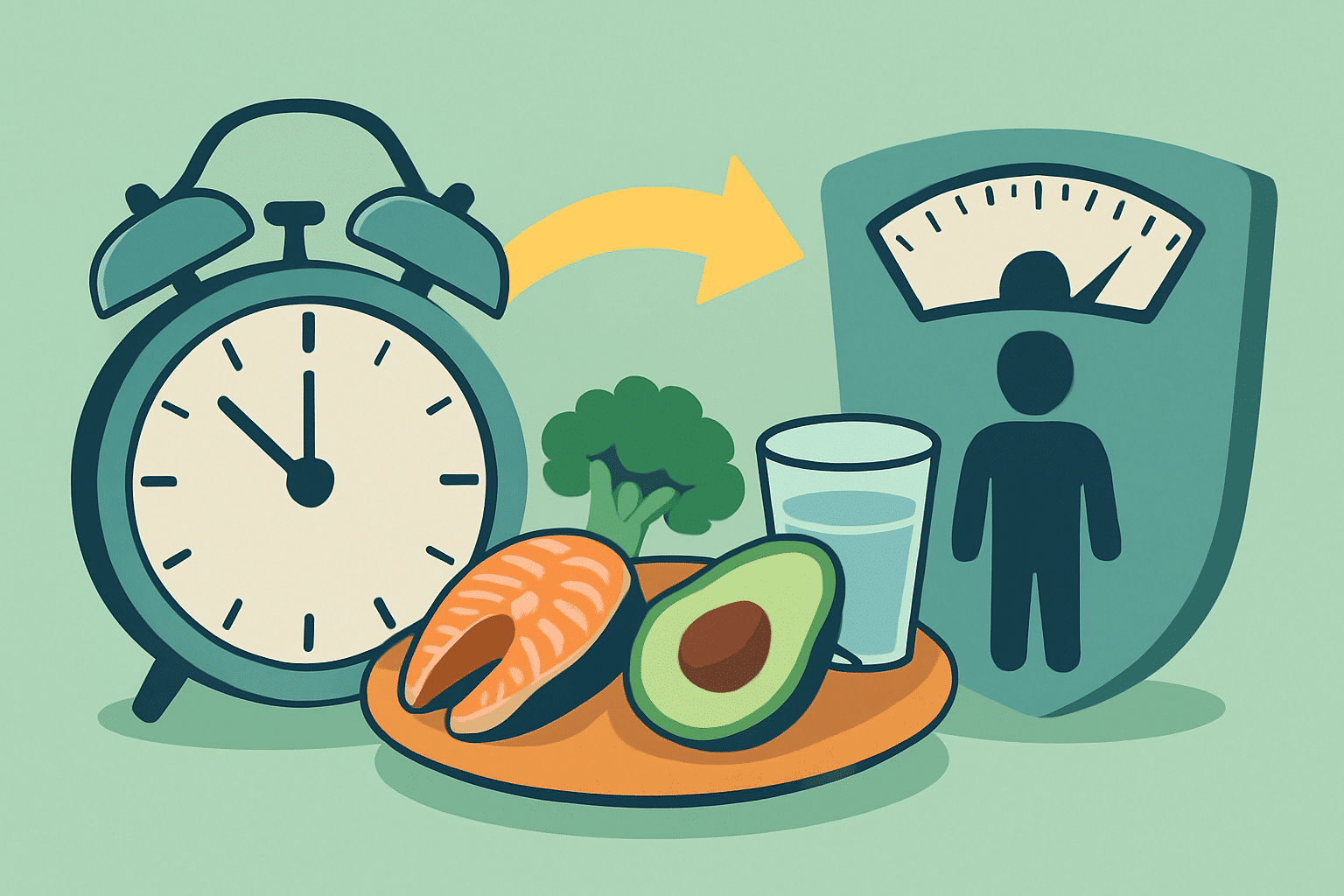Those looking to lose weight have a huge number of diets and lifestyles to choose from, but can you achieve a healthy weight with intermittent fasting? This way of eating, where you don’t eat for a fixed period of time in a day, could help the body lose weight more efficiently. In this blog, we explain how it works and what the benefits are.
What is intermittent fasting?
Intermittent fasting is not a diet, let’s start with that. It’s not about what you eat, but how often and when you eat. The English term means periodic fasting. You adjust your eating schedule with this.
Thus, you can opt for a 16/8 schedule, which is one of the most popular options. This involves eating nothing for 16 hours, followed by an 8-hour period when you can eat. You can imagine this as follows.
You get up at 7 a.m. Normally you start with breakfast, but now you do not. Not until noon can you start eating. For the next 8 hours, until 8 p.m. you can eat regular meals. So the fasting period lasts from 8 p.m. to noon the next day.
There are several variations of intermittent fasting, such as the Warrior Diet, where you eat only one large meal in a day.
You can also choose several days a week where you don’t eat, such as 5 days of normal eating and 2 days of not eating. But does intermittent fasting affect your weight?

The benefits of intermittent fasting for a healthy weight
There are more and more studies that seem to show that intermittent fasting can have positive effects on your weight. So short periods of fasting could be quite healthy for you. That’s because fasting affects your metabolism.
Intermittent fasting is based on the lifestyle of our distant ancestors. Of course, we do not know exactly how and what they ate, but they probably had to deal with periods of fasting. When they woke up, they could not go straight to breakfast; food had to be found first. Research shows that our bodies can handle periods without food just fine.
Thus, periodic fasting improves the functioning of hormones, which promotes weight loss. On top of that, lower levels of insulin, higher HGH levels and higher levels of norepinephrine all cause the breakdown of body fat. It also makes it easier for your body to use fat as a source of energy. This is why intermittent fasting has a positive effect on your metabolism, causing you to burn even more calories. This emerges from research by Izzah Vasim, Chaudry N. Majeed and Mark DeBoer (published on PubMed in 2022).
A Chinese study compared intermittent fasting with other diets. 131 obese people participated. They applied intermittent fasting for 12 weeks and lost an average of 5% of their body weight, more than those who used other ways of losing weight. We must keep in mind that this study used the method of 5 days of normal eating and 2 days of fasting per week.
A review of 27 studies from 2020, concluded that people doing intermittent fasting could lose an average of 0.8 to 13% of their body weight.

What can you eat with periodic fasting?
Intermittent fasting, as mentioned, is not a diet. Basically, you can eat normally when it’s time to eat. There are those who choose to combine this way of eating with certain diets, such as low-carb or paleo. However, this is not necessary. However, it is important to be careful that when it is time to eat, you do not eat more calories than you normally did.
During the period of fasting, the intention is not to eat anything. You can drink, but only liquids without calories, such as water, tea, black coffee or herbal tea.
Some people choose to support their lifestyle or diet with supplements (medicinal mushrooms). For example, research is being done on the effects of certain natural substances on metabolism or blood sugar levels. Keep in mind that the effects of many supplements are not yet sufficiently scientifically substantiated and are not suitable for everyone. If you are considering supplements always discuss it with a doctor or qualified health care provider, especially if you have health conditions or are taking medications.
While fasting, it is also fine to engage in physical activity. As you could read earlier, your body is tapping into fat reserves right now, and by exercising more you can lose weight even more effectively.
Is periodic fasting suitable for everyone?
If you approach periodic fasting in a healthy way, in most cases it does not pose any risks. Yet it is not suitable for everyone and it is not yet exactly clear what the long-term health effects are, for example. There are also studies that suggest that calorie restriction alone is just as useful as intermittent fasting.
In addition, scientists have not yet figured out whether certain fasting cycles are as beneficial as others. There is even evidence that 16-hour fasting and 8-hour eating increases the risk of heart disease, compared to other forms of periodic fasting, reads the Mayo Clinic site at Nutrition and healthy eating.
They also report that intermittent fasting can cause symptoms such as dizziness and fatigue for some people. Also, this way of eating can affect diabetes management and cause headaches and mood swings.
Furthermore, intermittent fasting is not recommended for people who:
- Having an eating disorder
- Being pregnant or breastfeeding
- Have a high risk of weaker bones
This blog is intended as a source of information and is not medical advice. If you are considering intermittent fasting, discuss it with your doctor first, especially if you have health issues. There are plenty of other dietary modifications or eating styles that can also work well for you if you want to lose weight.







